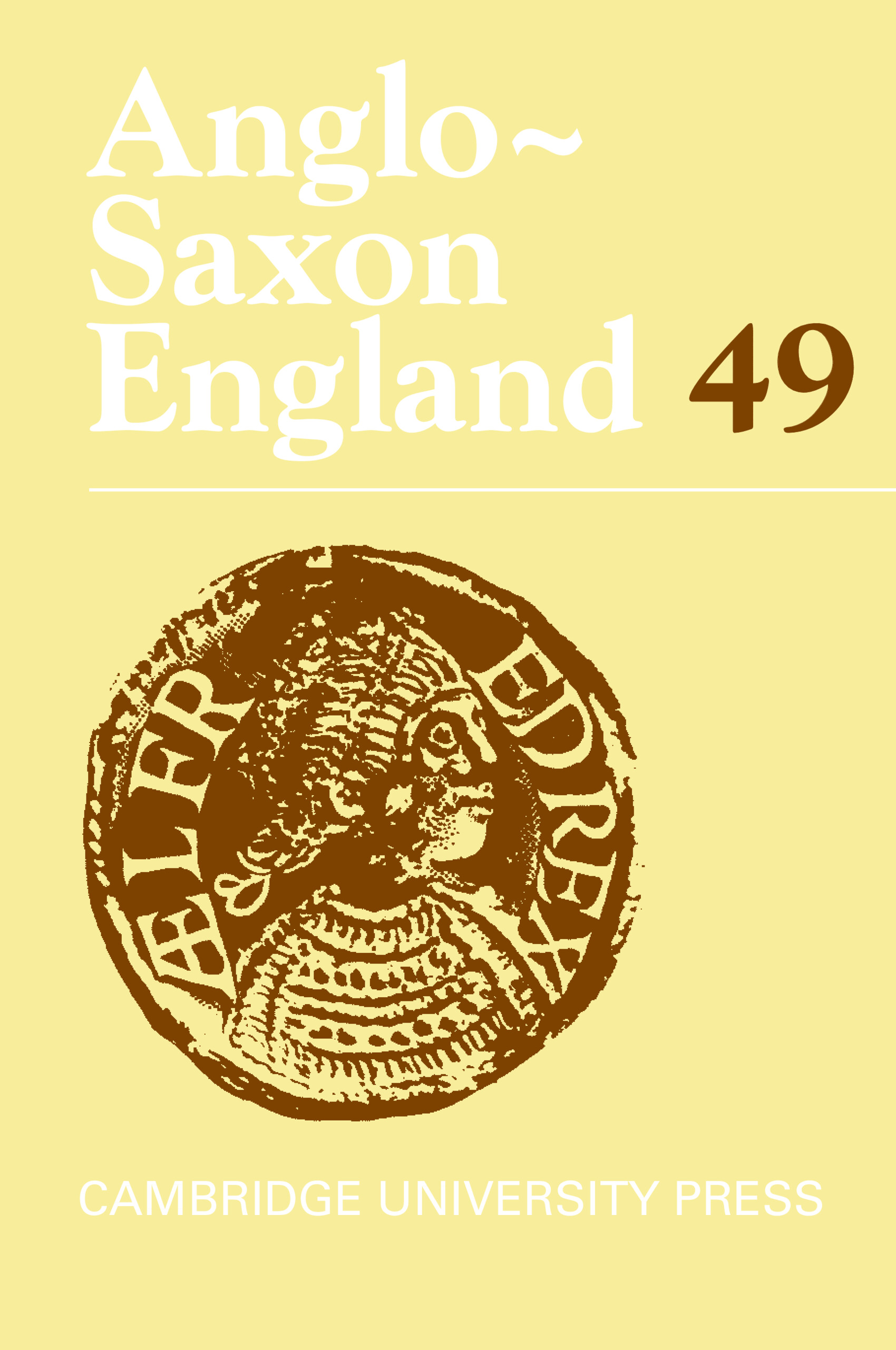Article contents
An Old English formulaic system and its contexts in Cynewulf's poetry
Published online by Cambridge University Press: 17 December 2012
Abstract
A group of half-lines in Cynewulf's poetry that take the form þurh + demonstrative pronoun + adjective + gesceap/gesceaft constitutes a distinctively Cynewulfian realization of a more widespread formulaic system (x X gesceaft). Only Cynewulf substitutes (in two closely similar contexts) gesceap for gesceaft, and Cynewulf consistently uses both words to refer to a specific ‘created thing’ instead of to ‘creation’. Within the system as a whole, the specific referent of gesceaft in the sense ‘creation’ (heaven, or earth, or all of creation) is often clarified by deixis, specifically in the type of demonstrative pronoun that modifies the word. Cynewulf's choice of the distal pronoun þæt likewise indicates that the apparently ambiguous referents of gesceap/gesceaft in Juliana 273b and 728a and Elene 789a are heavenly or unearthly things, and analysis of context as well as Christian-Latin analogues supports a specific identification of the referent in each case. While availing himself of an existing formulaic system, then, Cynewulf was innovative in its metrical realization as well as in its semantic application.
- Type
- Research Article
- Information
- Copyright
- Copyright © Cambridge University Press 2011
- 3
- Cited by




